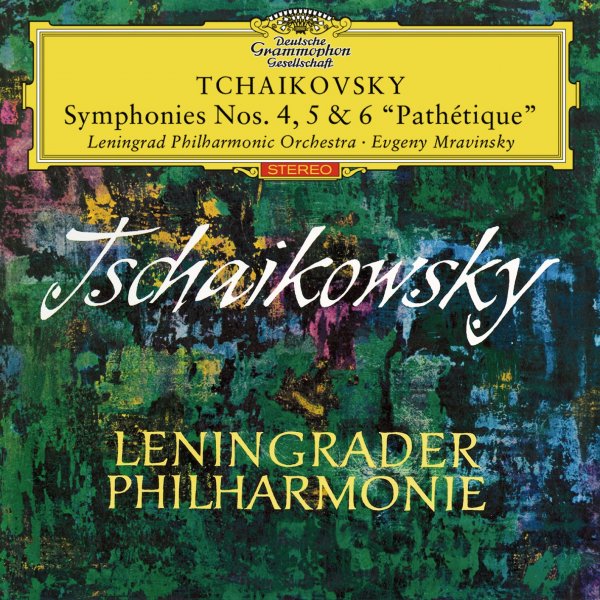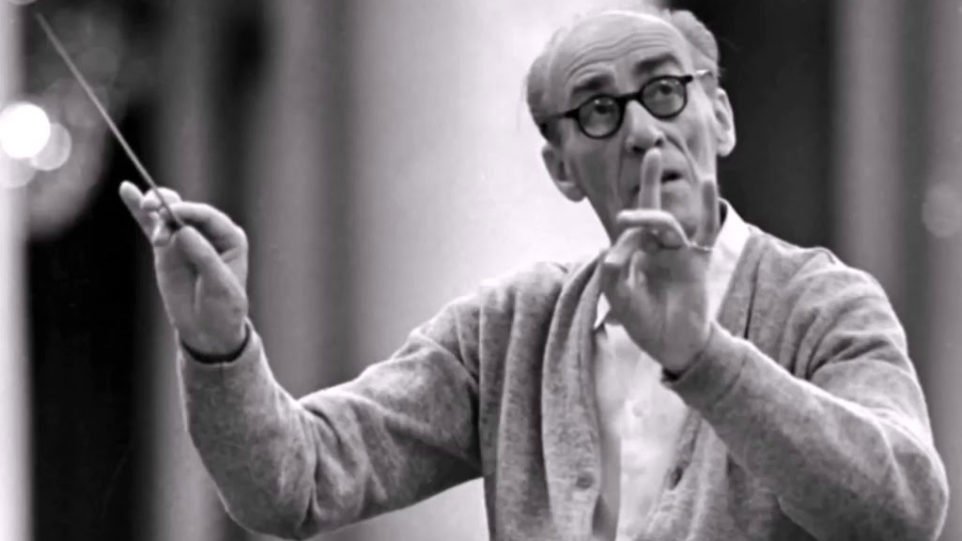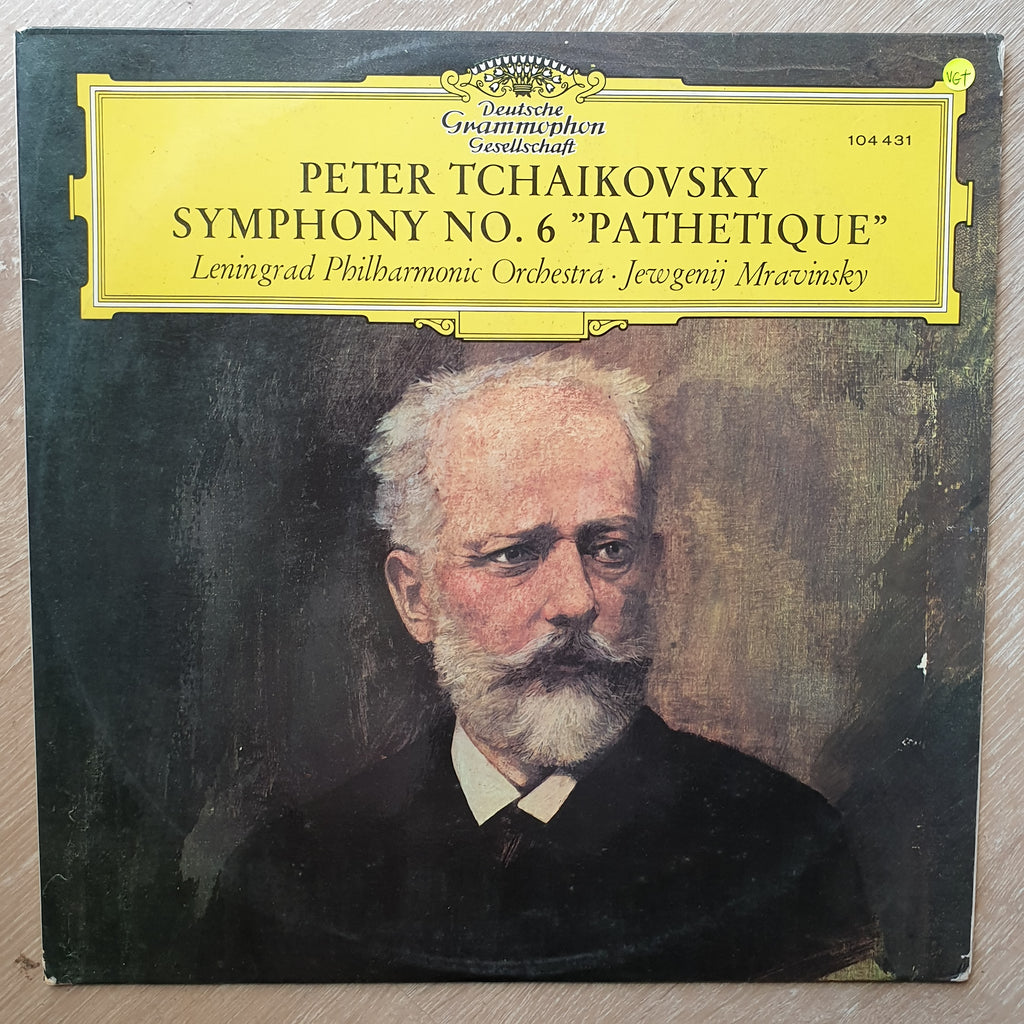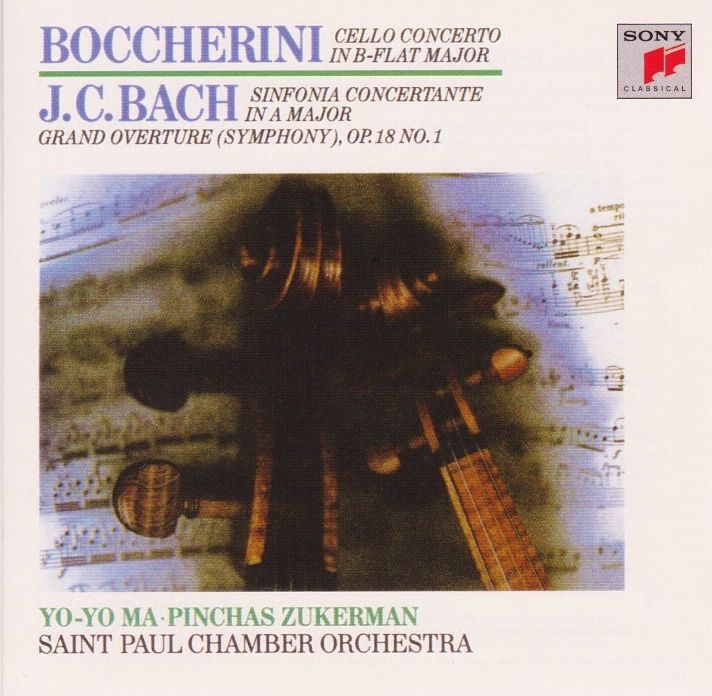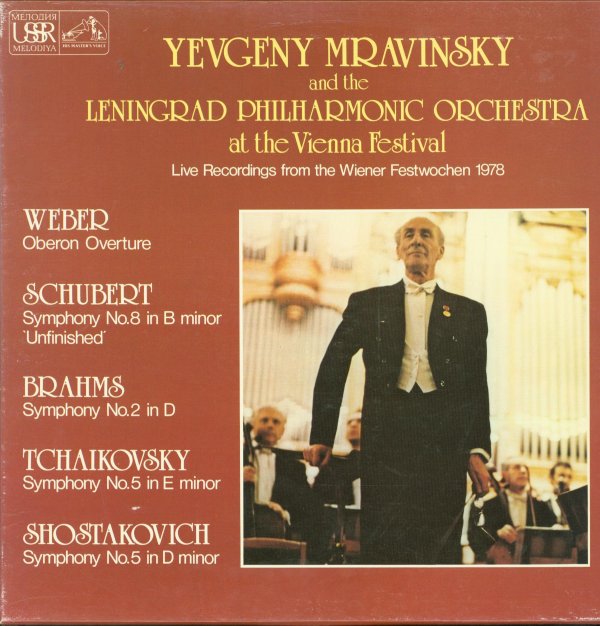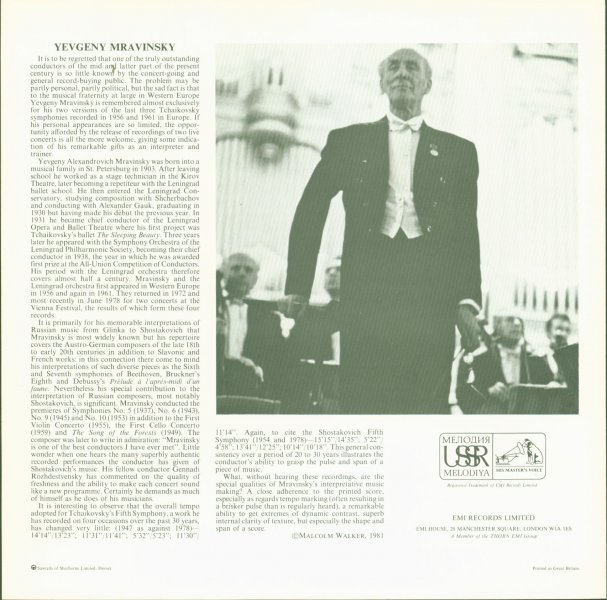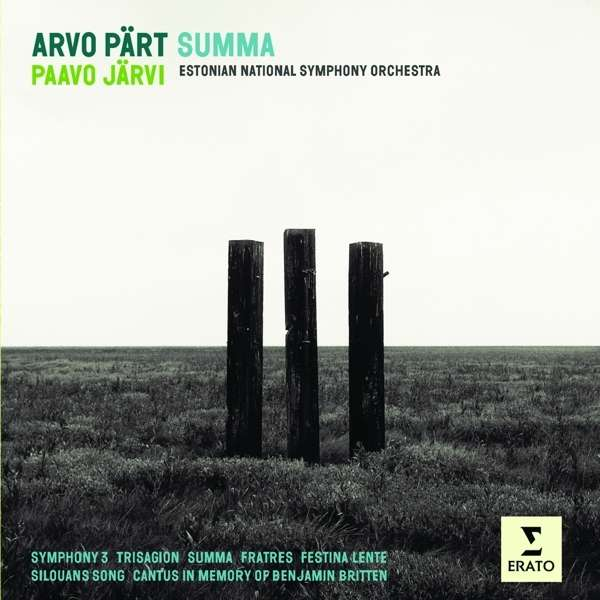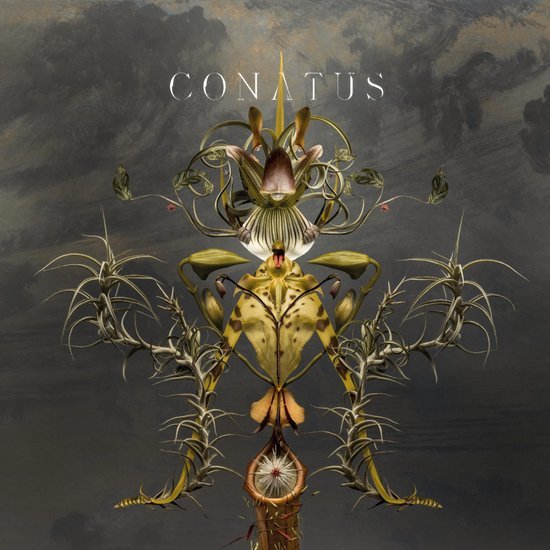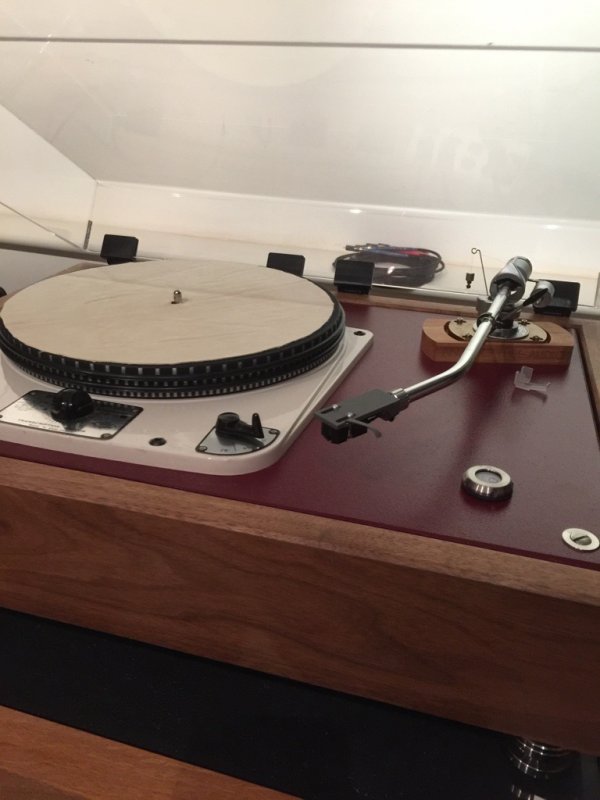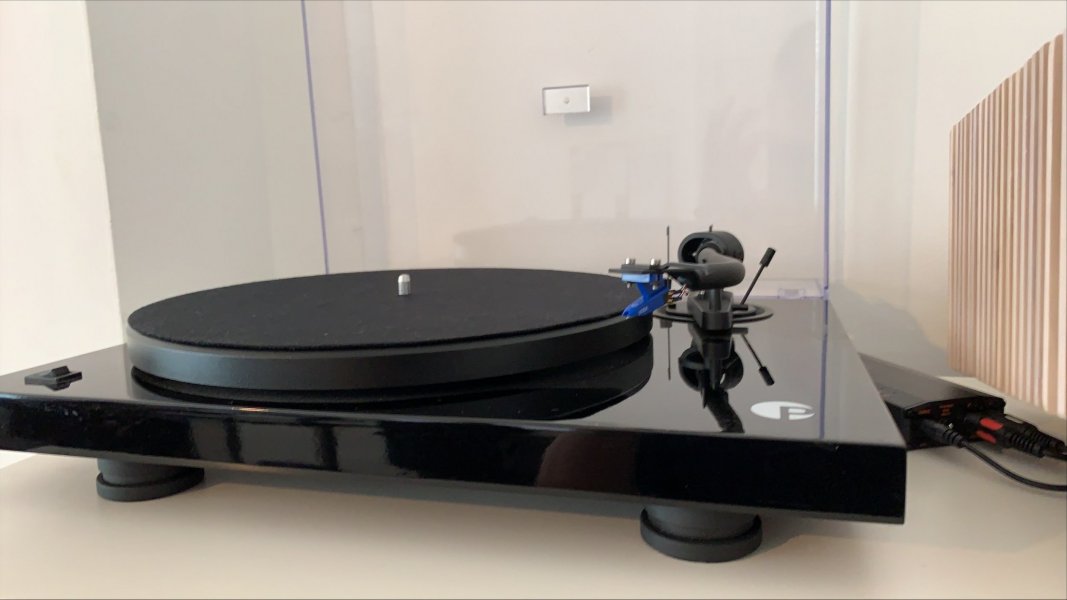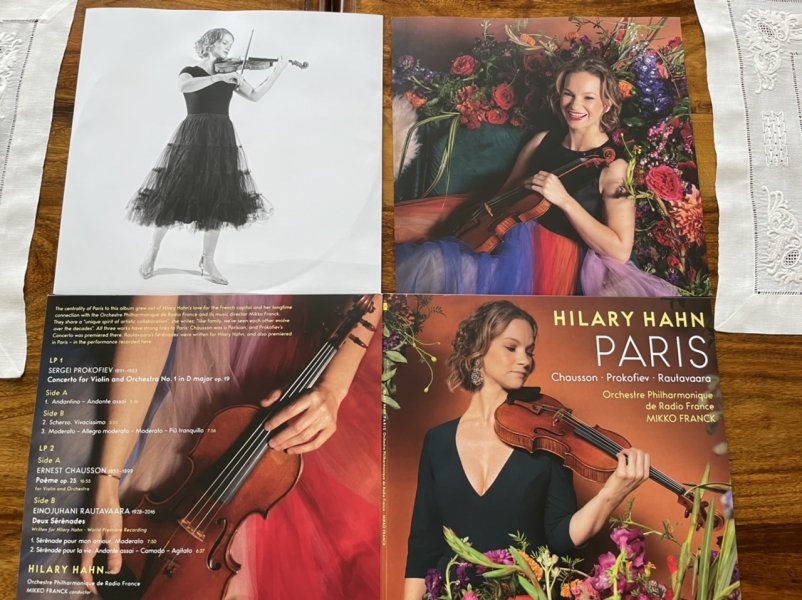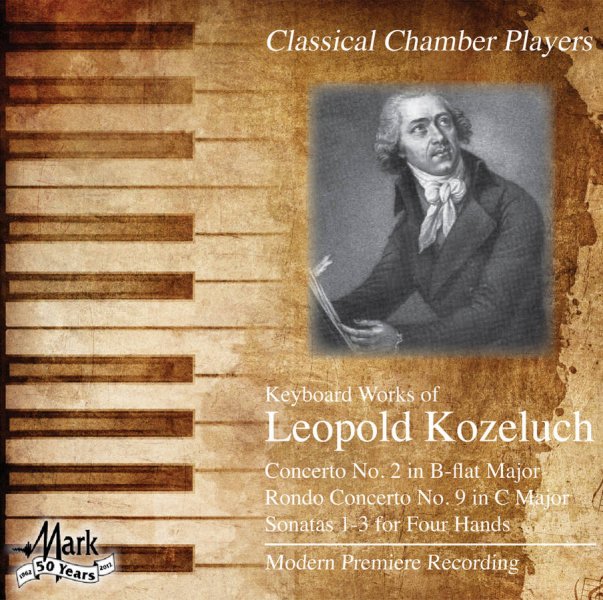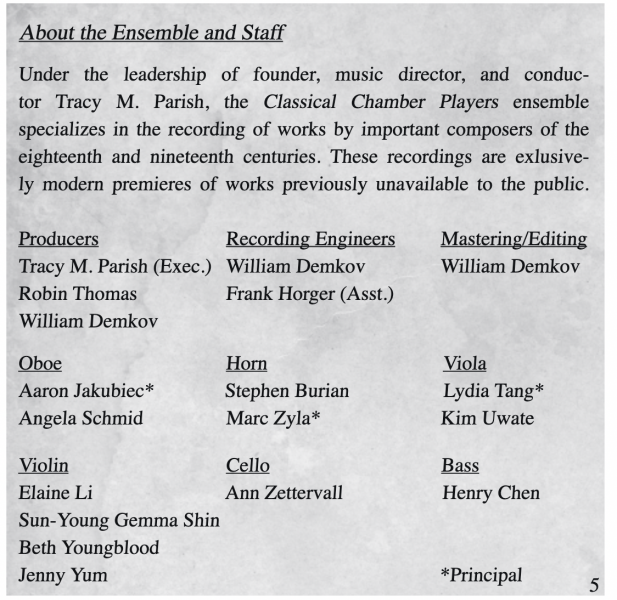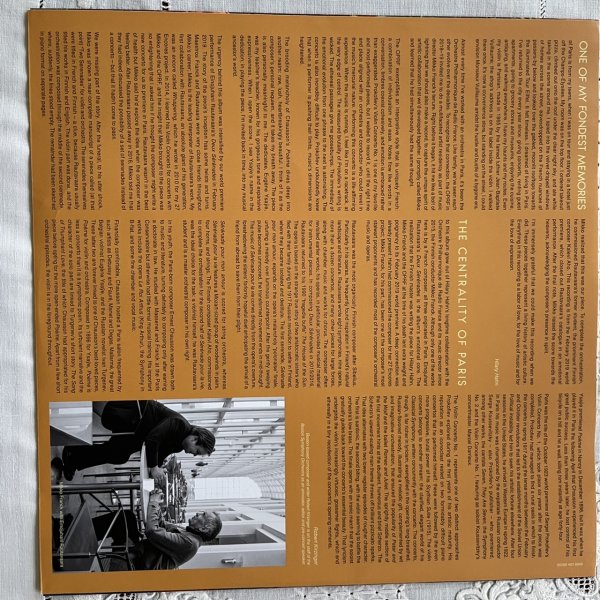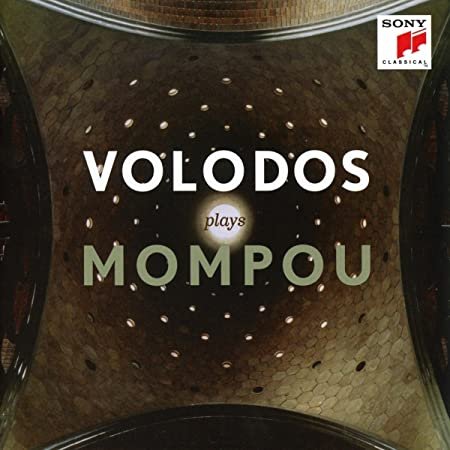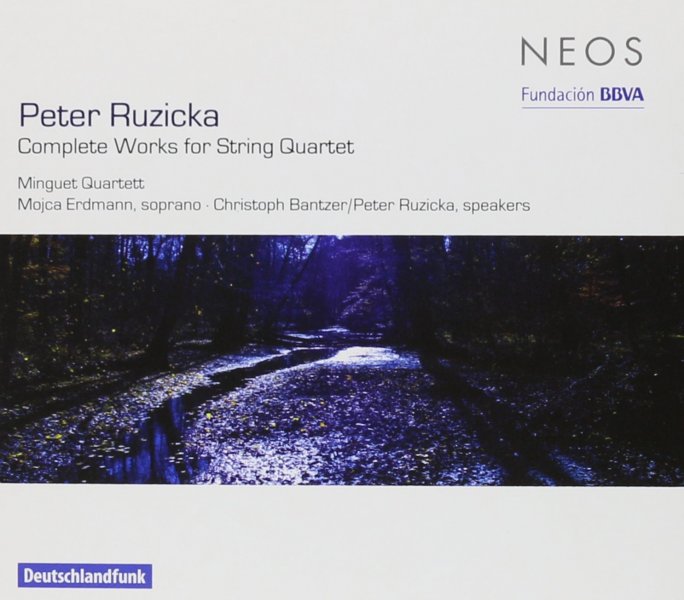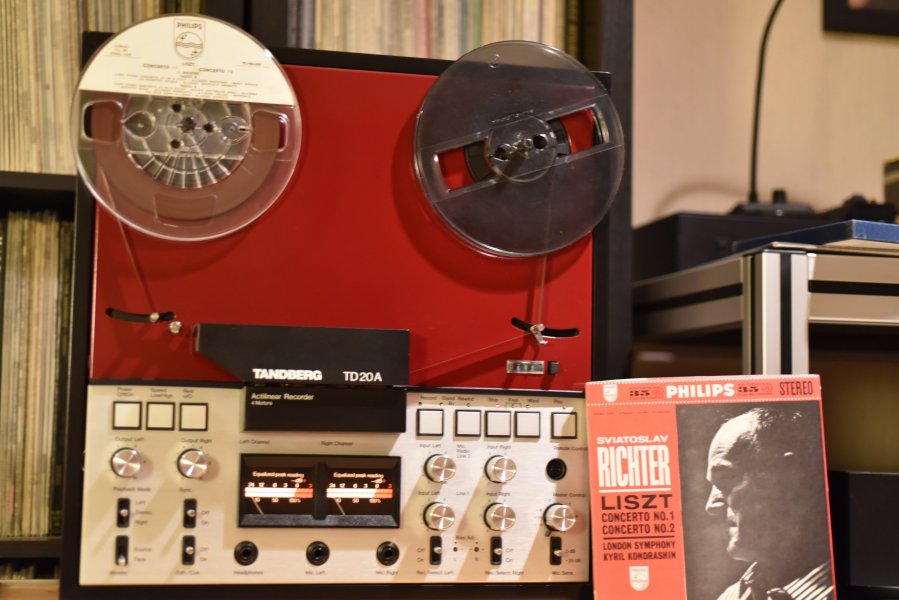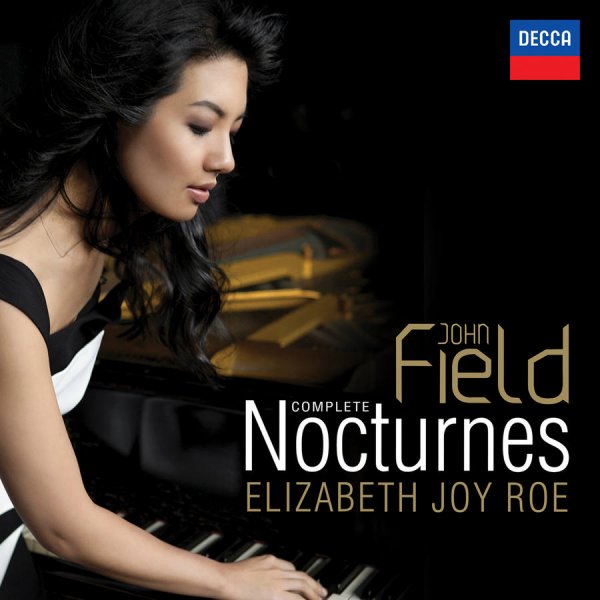I confess to loving the Russians.
Carrying on with the LPO, last evening I listened to this:
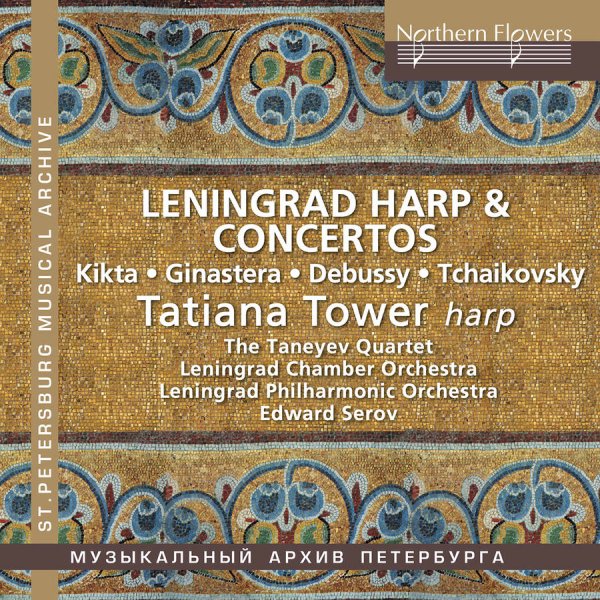
It was music I had never heard before, and not altogether easy. Kikta was unknown to me. One movement was described in the accompanying booklet as
......cluster technique of modern composition and ostinato variations of texture and dynamics, the author impressively develops the eternal theme of antagonism and continuous struggle in life.
That seems about right - Kikta sounded alot like he had his fair share of life's struggles. No doubt at the time his composition techniques were bleeding edge. Emphasis on the bleeding. Still, I am glad to have experienced it.
Debussy and Tchaikovsky were, respectfully, more approachable.
The LPO was, of course, extraordinary, and the Harpist Ms. Tower, exceptional.
I confess to have developed a touch of hero worship in Evgeny Mravinsky. I shall learn more of him. No doubt Kal, Tim and AMR and many others here more experienced than I are each very familiar with him.
I suggest Mravinsky must have had incredible self discipline and control, to instill it so effectively in others. One wonders its origin - relentless drive often speaks of past hardship overcome.
Recordings: St. Petersburg (Leningrad) Recording Studio at the Leningrad Capella Concert Hall in 1978 (1-8, 13) and 1984 (9, 10-12, 14-15).
Catalogue number NF99140
Ashort history of the harpist, and Kikta, follow - which may be of interest - both taken from the accompanying booklet.
This program is dedicated to the remarkable Russian harpist Tatiana Tower,who became a musical legend of Leningrad. She was born in Moscow in 1945and started playing harp at the age of four on the advice of her aunt Sofia Tower, soloist of the Bolshoi Theatre. She studied at the Gnessin College, and after that at the Moscow Conservatory with Xenia Erdely and Vera Dulova. In 1969 shewon at the first International Harp Competition in Hartford, USA, and became a prize winner of the international music festival of Latin America. In 1968, Tatiana Tower’s life took a momentous turn – she became soloist of the Leningrad Philharmonic Orchestra headed by Evgeny Mravinsky, a great conductor of the 20th century, and thus connected her artistic life to Leningrad.In 1973, Tatiana Tower started teaching at Leningrad Conservatory; she educated several generations of professional musicians, among them Irina Tischenko-Donskaya. The harpist concertized much in and outside the USSR,was on the juries of international competitions, gave master classes, and pursued intense teaching and recital activity. At the collapse of the Soviet Union, Tatiana Tower, together with her husband Boris Kozlov, (double-bassist of the Leningrad Philharmonic), left the country for Spain, and then the Netherlands. She died of thyroid cancer in Hilversum, in1994, at the age of only 48. Presented here are records from different years made by Tatiana at the Leningrad Recording Studio (Leningrad branch of the label Melodya) in collaboration with the Leningrad Philharmonic and the Leningrad Chamber Orchestras under the baton of Edward Serov, and with another legendary ensemble of the city upon the Neva, the Taneyev String Quartet.
Valery Grigorievich Kiktais a “child” of two Slav peoples, Ukrainian and Russian. He was born in a small village of Vladimirovka, Donetsk Oblast, Ukraine. He entered the Moscow Choral College, and then the Moscow Conservatory, where he studied with Tikhon Khrennikov, the famous head of the Soviet composers Union. Upon graduation, he long (1967-93) worked as lead musical editor of the Soviet Composer publishers, and then taught instrumentation and composition at the Conservatory. Since 2004 he has been Chairman of the Russian Harp Society. Apart from many compositions, his writings include dozens of art research papers. Valery Kikta has written 11ballets (Dubrovsky, Vladimir the Baptist etc.), symphonic opuses (“UkrainianCarols, Yuletide Songs, and Spring Songs”) oratorios and cantatas, instrumental concertos, choral and vocal works, pieces for organ and harp, music for children and youth, and multiple compositions for orchestra of Russian folk instruments.
Kikta is, I suggest, a contemporary composer which may reward familiarity. Down another rabbit hole!
